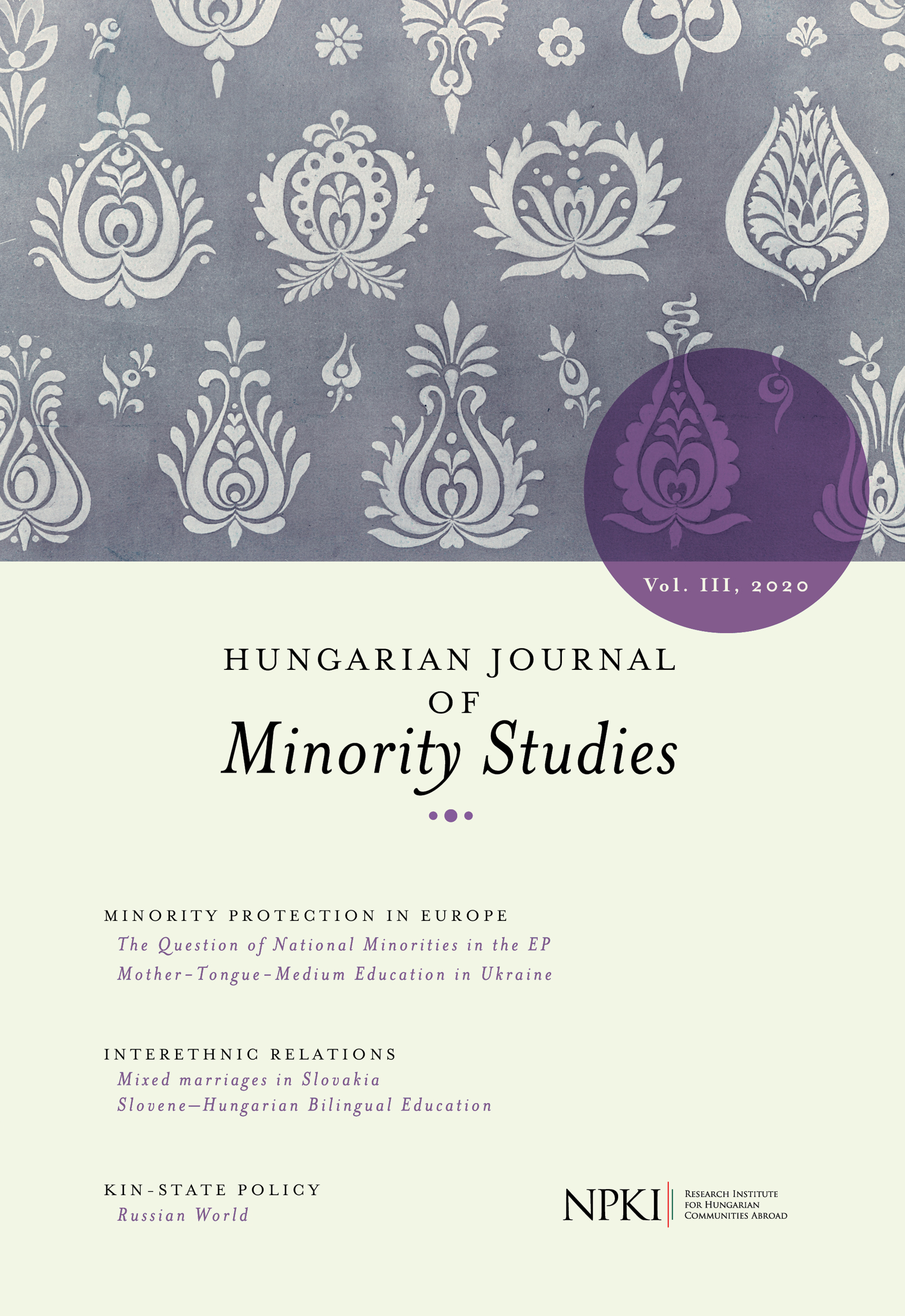Slovene–Hungarian Bilingual Education in Slovenia in the Third Millennium
Slovene–Hungarian Bilingual Education in Slovenia in the Third Millennium
Author(s): Anna KollathSubject(s): Politics / Political Sciences, Politics, Social Sciences, Language studies, Language and Literature Studies, Education, Sociology, Inter-Ethnic Relations, Ethnic Minorities Studies, Politics and Identity
Published by: Nemzetpolitikai Kutatóintézet
Keywords: bilingual education;minority languages;mother tongue education;
Summary/Abstract: Recently, there is worldwide an intense debate about the efficiency and implementation of bilingual education. This problem becomes a very sensitive issue if education includes a minority and a majority language. The former one almost always has a lower level of prestige, and that is why it is endangered. That means minority language needs stronger support in the education process in order the keep the balance between languages since the macro environment of minority students is dominantly not in their mother tongue, but the official language of the state. Education of Hungarian as a mother language and as the language of instruction plays an important role in preservation of minority mother tongue and keeping and increasing its vitality. The occurrence of minority language/language variety compared to official language of the state in the school and the possibility of secondary language socialization in mother tongue are good indicators of the constitutional, legal background and legal security of a certain national community. Efficient minority education of Hungarian as a mother language and as the language of instruction could provide the functional bilingualism which is essential for minority’s everyday life. The aim of this paper is to introduce the complexity and variety of topics of this education model, and to furthermore illustrate how the different reactions related to (the bi- and multilingual and multicultural) society can change its functioning and existence. The paper also underlines that this model is able to be renewed, and its additional features are the quick and intense changes which are regulated by law. The innovations of the new millennium which aim is the inner renewal can lead education process in the right direction and increase its efficiency but only if the creation of laws is influenced by practical needs, what is more there are not any difficulties about its implementation.
Journal: Hungarian Journal of Minority Studies
- Issue Year: 3/2020
- Issue No: 1
- Page Range: 105-140
- Page Count: 36
- Language: English

